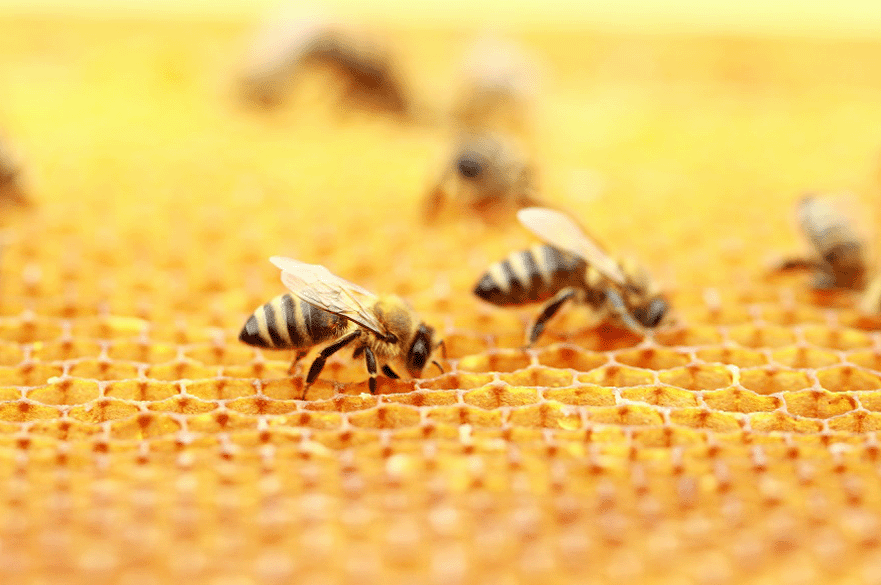World Bee Day, 20 May: how can we help protect our bees?
Published: 18/05/2022
It’s World Bee Day this Friday 20 May, and we’re all being encouraged to ‘Bee Engaged’ with our buzzing black and yellow friends.

Bees are one of the hardest working creatures in the world, and honeybees in particular fly around 55,000 miles to collect enough nectar to make just one pound of honey. Here, we highlight some interesting facts about bees and what we can all do to protect them.
Fascinating facts about bees
Did you know that queen bees ‘toot’ loudly in the hive to inform the worker bees of their importance? Dr Martin Bencsik is part of a team of NTU scientists based at Clifton Campus, who have been studying honeybee communication in the hive. You can read more about their research on the NTU website.
This research was also featured in Chris Packham’s Animal Einstein series, revealing some of the cleverest animal communicators on the planet.
The World Wildlife Fund (WWF) highlights some more interesting facts about bees:
- Busy Bees - almost 90% of wild plants and 75% of leading global crops depend on animal pollination. One out of every three mouthfuls of our food depend on pollinators.
- Honey I’m Home! - bees can be found living in so many surprising locations, including - marshes, shingle, sand dunes, soft cliffs, heathlands, wetlands, chalk grasslands, quarries, gravel pits, sea walls and even post-industrial land.
- Bees rely on a transport system to get around - B-Lines are a series of ‘insect pathways’ running through our countryside and towns. They link existing wildlife areas together, creating a network, like a railway, that will weave across the British landscape.
How we can support bees
Bees are under threat of extinction for many reasons, including habitat loss – wildflower meadows have all but disappeared in recent years – climate change, toxic pesticides and disease.
Adam McVeigh, Research Assistant at NTU's School of Science and Technology said:
I’d like to see us all do more for pollinators, including all the 250+ species of wild bees we have in the UK. This includes providing more flowers for nectar and pollen, but also more suitable habitats such as tall grass areas, dead trees being left, and areas of bare ground.
Here are a few other ways you can support bees in your own garden:
- Plant through the seasons - bees need nectar sources throughout the year, so think about planting flowers that bloom and provide pollen at different seasonal points.
- Grow fruit, vegetables and herbs - bees love fruit and veg, and they’ll help pollinate them for you.
- Put up a bee hotel - support solitary bees by providing them with nesting shelter, via a bee hotel. Place one (or more) on a wall or fence in your garden.
- Have a hive in your garden - if you have a big garden, you may be able to help a local beekeeper by providing space for a hive or two.
- Don’t cut your lawn as often - it can help bees if you allow lawn ‘weeds’ to flower by cutting the grass less often. This will help give pollinators places to feed and shelter among the grass.
- Avoid pesticides - to keep your garden as welcoming as possible to bees, gardeners should also avoid using pesticides wherever possible.